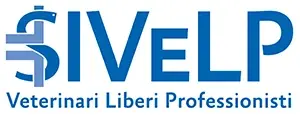COVID-19 e attività veterinarie essenziali, dichiarazione congiunta OIE-WVA


OIE/WVA Joint Statement
In the framework of the COVID-19 pandemic, the World Organisation for Animal Health (OIE) and the World Veterinary Association (WVA) jointly draw attention to the roles and responsibilities of the veterinary profession for public health. They highlight the specific veterinary activities which are key to ensure a continuum in food safety, disease prevention and emergency management.
To effectively tackle the challenges posed by the COVID-19 pandemic, many governments around the world have taken restrictive measures to close non-essential businesses. These decisions raise questions regarding potential adaptations that need to be implemented by the veterinary profession.
In this context, the World Organisation for Animal Health (OIE) and the World Veterinary Association (WVA) advocate for the specific activities of Veterinary Services to be considered as essential businesses.
Maintaining the activities that are crucial to public health
Veterinarians are an integral part of the global health community. Beyond the activities linked to the health and welfare of animals, they have a key role in disease prevention and management, including those transmissible to humans, and to ensure food safety for the populations.
In the current situation, it is crucial that, amongst their numerous activities, they can sustain those necessary to ensure that:
- national and regional veterinary regulatory and inspection services can oversee the integrity of public health
- only healthy animals and their by-products enter the food supply to guarantee food safety for the populations,
- emergency situations can be addressed,
- preventative measures, such as vaccination against diseases with a significant public health or economic impact, are maintained.
- priority research activities continue.
Supporting veterinary activities in the current context
When conducting their work, veterinarians have the responsibility to safeguard their health, the health of those they work with, and their clients’ health. Hence, they must ensure that appropriate levels of biosecurity are implemented, that their personnel are protected with the necessary equipment, and that animal owners are informed of precautionary measures in place. It is the responsibility of each individual to ensure that appropriate behaviours are respected in the framework of these activities, to avoid further spread of COVID-19.

Nel quadro della pandemia COVID-19, l’Organizzazione mondiale per la salute animale (OIE) e la World Veterinary Association (WVA) hanno fatto una dichiarazione congiunta in cui portano l’attenzione sui ruoli e le responsabilità della professione veterinaria per la salute pubblica. Le due Organizzazioni sottolineano quelle che dovrebbero essere le attività veterinarie specifiche fondamentali per garantire piena continuità nella sicurezza alimentare, nella prevenzione delle malattie e nella gestione delle emergenze.
Per affrontare efficacemente le sfide poste dalla pandemia di COVID-19, molti governi di tutto il mondo hanno adottato misure restrittive per chiudere le attività non essenziali. Queste decisioni sollevano interrogativi sui potenziali adattamenti che devono essere attuati dalla professione veterinaria. In questo contesto, l’Organizzazione mondiale per la salute animale (OIE) e la World Veterinary Association (WVA) sostengono che le attività specifiche dei servizi veterinari vengano considerate attività essenziali.
Mantenere le attività cruciali per la salute pubblica
I veterinari sono parte integrante della comunità sanitaria globale. Oltre alle attività legate alla salute e al benessere degli animali, hanno un ruolo chiave nella prevenzione e nella gestione delle malattie, comprese quelle trasmissibili all’uomo, e nel garantire la sicurezza alimentare alle popolazioni.
Nella situazione attuale è fondamentale che, tra le loro numerose attività, possano garantire quelle necessarie affinché:
- i servizi di regolamentazione e ispezione veterinari nazionali e regionali possano controllare l’integrità della salute pubblica
- solo gli animali sani e i loro sottoprodotti entrino nell’approvvigionamento alimentare per assicurare la sicurezza alimentare alle popolazioni,
- le situazioni di emergenza possano essere affrontate,
- vengano mantenute misure preventive, come la vaccinazione contro malattie con un significativo impatto sulla salute pubblica o economica.
- proseguano le attività di ricerca prioritarie.
Sostegno alle attività veterinarie nel contesto attuale
Nello svolgimento del proprio lavoro, i veterinari hanno la responsabilità di salvaguardare la propria salute, la salute di coloro con cui lavorano e la salute dei propri clienti. Pertanto, devono garantire che vengano attuati livelli adeguati di biosicurezza, che il loro personale sia protetto con le attrezzature necessarie e che i proprietari di animali siano informati delle misure precauzionali in atto. È responsabilità di ciascun individuo garantire che i comportamenti appropriati siano rispettati nel quadro di tali attività, al fine di evitare un’ulteriore diffusione di COVID-19.
